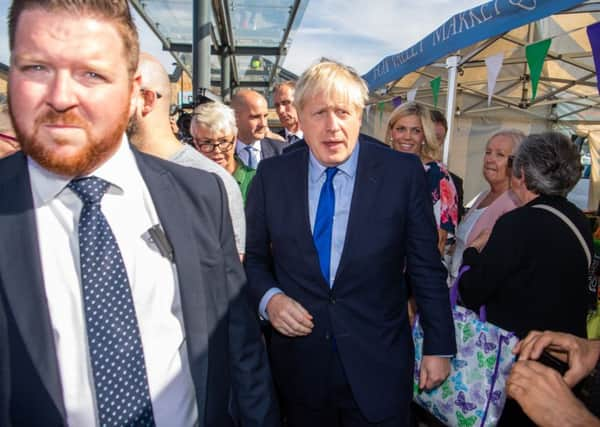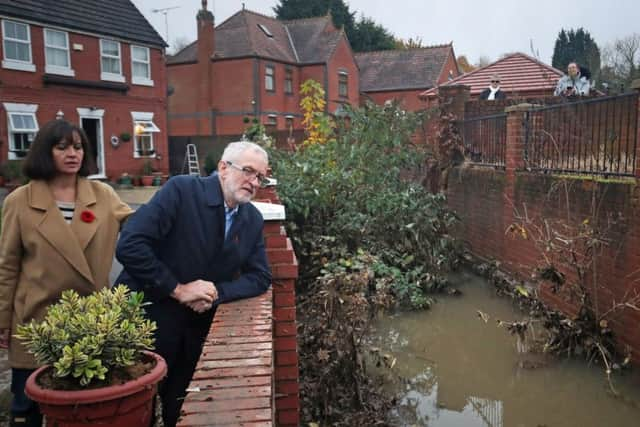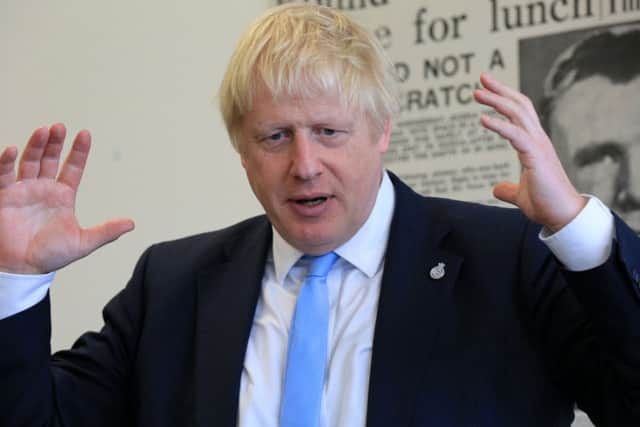Leave-voting Labour supporters hold key to Boris Johnson election success in Yorkshire – Ryan Swift


Boris Johnson will also be hoping to appeal to socially conservative voters across the region. In this he may have some success, but the party’s negative reputation in some parts of Yorkshire, a legacy of the industrial strife in Margaret Thatcher’s era, may hamper his prospects.
Brexit: Yorkshire voted 58 to 42 per cent in favour of Leave. Since then, Brexit identities – being a “Leaver” and “Remainer” – have become increasingly significant political labels for much of the electorate. They are now more important than party allegiance for some.
Advertisement
Hide AdAdvertisement
Hide Ad

If this is the case, many Leave supporters may ditch traditional party loyalties at this election and be drawn to the Conservative Party with its oft-repeated promise to ‘get Brexit done’.
Despite being criticised over the failure to leave the EU on the previous deadline of October 31, it now appears likely that the Conservatives will be the party of choice for most Leave supporters. This will help them in some parts of the region.
Advertisement
Hide AdAdvertisement
Hide Ad

Since the Brexit Party announced its decision to stand down in seats won by the Conservatives in 2017, they have seen a slump in popularity according to the polls. The extent to which they split the Leave vote in Labour-held Conservative target seats may now be more limited than initially anticipated, yet they could still hinder the Conservatives.
Social values: The Leave-Remain divide is not the only issue that the 2016 referendum brought to the fore. Increasingly, there is a cosmopolitan-communitarian divide in British politics.
In terms of the impact of this on party support, it now appears that the young, the more highly educated, professionals, and more liberal-minded voters are more likely to vote Labour. Meanwhile, older, less well educated, semi-skilled workers, and those with a more socially conservative outlook, are increasingly drawn to the Conservatives.
Advertisement
Hide AdAdvertisement
Hide AdThis is significant because working-class, socially conservative voters like those described above are a key demographic in many of the constituencies that the Conservatives are targeting in Yorkshire.
Party reputation: In recent months, both Labour and the Conservatives have sought to appeal to voters in the North of England – including Yorkshire – with promises of greater investment in the region.
The Conservatives have pledged to re-boot the Northern Powerhouse agenda and provide some investment in struggling towns. Labour has gone further, promising significantly more investment in the region, as well as pledging to move parts of the Treasury to the North.
Jeremy Corbyn has sought to politicise the recent floods in South Yorkshire, framing the Conservatives arguably lacklustre response as evidence of the party’s Southern-centric mindset and disdain for the North.
Advertisement
Hide AdAdvertisement
Hide AdThis may benefit Labour as it chimes with preconceived ideas about the Conservative Party held by many voters in the types of post-industrial areas that the Tories are targeting – it may be that Boris Johnson’s party simply remains too toxic a brand for some voters.
Prospects: It seems likely that the Conservatives will have their best performance in decades in Yorkshire at the 2019 election, at least in terms of the number of votes gained.
They will pick up additional support because of their position on Brexit and from socially conservative voters in traditional Labour areas turning their back on the party.
Given their current lead in the polls, the Conservatives will expect to hold all their current seats in Yorkshire. They will also hope to win back ultra-marginal seats that were lost at the last election like Keighley and Colne Valley.
Advertisement
Hide AdAdvertisement
Hide AdA good night for the Conservatives would see them taking seats that have been held by Labour for decades – places like Wakefield and Rother Valley. They’ll have done very well if they overturn Labour majorities in seats like Don Valley.
The Conservatives will also hope to significantly reduce Labour majorities in some of the party’s most traditional strongholds – seats like Barnsley East and Doncaster North. But while support for Leave was highest in these places, the sheer scale of Labour majorities there will prove insurmountable.
Ryan Swift is a PhD researcher in politics at the University of Leeds.